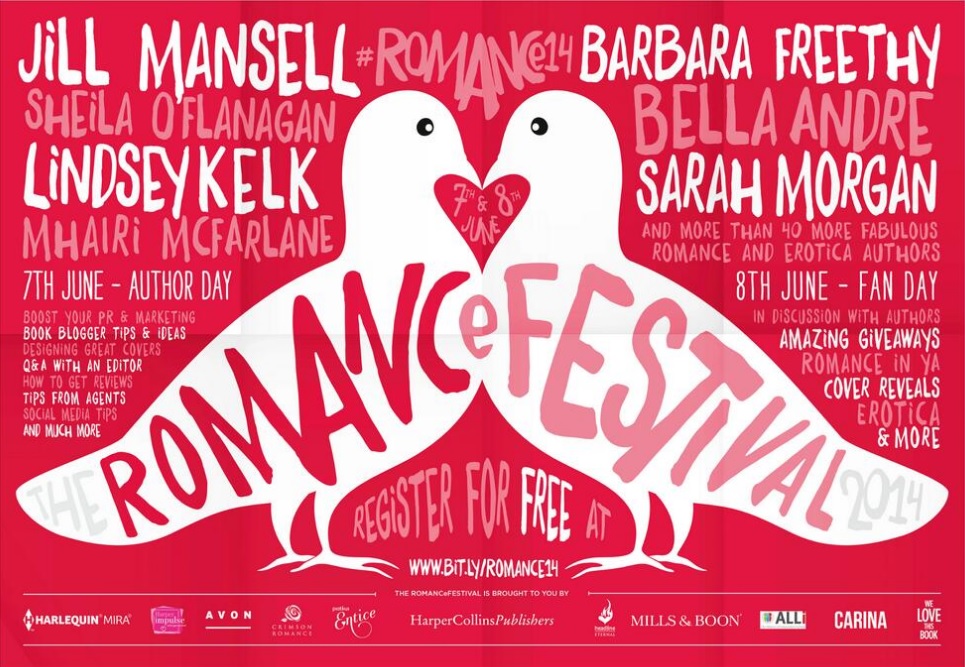Written by Isobel Dixon
So, you’re a writer. You’ve been putting in the hard yards, sitting at your desk/kitchen table/in bed, with your laptop/iPad/notebook and writing, WRITING, whichever way you can. In fact, you’ve written a lot – short stories, one that’s turned into a bit of a novella, a full War-and-Peace-sized novel manuscript even. Or you’ve started and abandoned books half a dozen times, but now you know that this one, this is The One That’s Not Going to Get Away. But you need help, some guidance, a boost in the right direction. Your family and friends are sick of you going on about your book, or are wondering why you keep disappearing, because you’re too shy to tell anyone that you have ambitions as a writer. What to do now?
There are many resources for writers, at many stages of their writing careers, and though I won’t go into extensive detail here, below are a few ideas and waymarkers. Some pointers, starting with your own practice and reaching out further. If you scroll down you’ll find a list with some links – not an exhaustive list and mostly a UK-focused one, but it will give you some idea of the kind of things you can look out for, wherever you are.
Already, as an observer and chronicler, you are watching and recording. Being ‘someone on whom nothing is lost’, as Henry James said. You’re alive to the world around you, noticing, and writing things down. Robert Louis Stevenson said he always carried two books at any time – one to read and one to write things in. And as a writer, you’re also going to be reading widely and closely – for pleasure as a reader, but also with an analytical eye to understand how plot , structure and narrative form work in practice. You can see a bit more about this in a piece I wrote about ‘voice’ (with some emphasis on poetry, given that I am a poet myself).
As a reader, and a writer aspiring to publication, you’ll be curious about how books are sold and received, so you’ll want to spend some time in bookshops and libraries. Whether you’re buying or borrowing, and whatever genre you are writing in, there is so much information to be absorbed there.
In your reading journey, ask questions of booksellers and librarians as to what they’ve liked and what they recommend in your chosen field. If you’re pressed for time, remember that you can listen to audiobooks via your library too. (And a note here that writers love the royalties they get from book sales, but in many countries, authors, translators, illustrators and audio narrators receive a small amount every time a library book is loaned, if they sign up to the national system, called Public Lending Right in the UK. So borrowing lots of books is good for writers too! If you’re published and haven’t registered your books for PLR yet, there’s no time like the present… And while you’re on the admin, check out the Authors’ Licensing and Collecting Society (ALCS), who also make payments to authors for registered titles, where there has been photocopying or other licensing use.)
Also ask questions as a writer – libraries and independent bookshops will have knowledge of book clubs and writers’ groups in your area too. At some stage you will need to ‘declare and share’ – acknowledging your goals as a writer, whatever your day job, and showing your work to someone else. This may be via an informal local group or a taught course, in-person or online, but it will be transformative, even as it pushes you beyond your comfort zone.
Beyond your local library, local universities may offer writing workshops – in London I started attending Michael Donaghy’s evening poetry workshop, a short course given by City University, which led me to the poetry friends I still informally workshop with, decades later.
Regional writer development organisations do invaluable work with and for writers, offering courses about the craft, information on publishing, creating networking opportunities, running festivals and prizes – so do check what there is in your region. At the agency, we’re big admirers of the National Centre for Writing in Norwich, with whom I have worked closely for years, New Writing North, Writing West Midlands, Writing East Midlands, Literature Works, Scottish Book Trust, and more. The Royal Society of Literature and the Royal Literary Fund also provide support for writers in different ways – see their websites for more.
The Arvon Foundation runs creative writing courses in Devon, Shropshire and Yorkshire. The Word Factory helps support short story writers, bringing established and emerging writers together for mentoring, helping to develop craft and contacts. They run an Apprentice Award Programme for this. Attending festivals, local author events and live literature nights like Café Writers (Norwich and online) will bring you into contact with more useful organisations and creative people! The many online and hybrid events and festivals now available provide wider access: do investigate online festival passes and what discounts are offered for students and those on low incomes.
Arts Council England, Arts Council of Ireland and Creative Scotland provide information and funding for writers and projects – see what applies to your region and what they showcase online. Literature Wales lists writers’ groups and literary societies across Wales and beyond on its site.
In London, Spread the Word also does excellent work, and Apples and Snakes supports spoken word artists. Recently, my colleagues Juliet, Sian and I enjoyed talking about agenting with the Black Girl Writers group: a free mentoring programme for Black women who write, pairing them with established authors and literary agents and hosting online workshops. Other towns and cities will have their projects too – too many to mention individually, so do your local research. Sign up to newsletters from organisations like these, and also festivals and venues that offer events and courses that could help you in your writing practice.
If you’re interested in finding out about the publishing industry in general, this year in the UK the Association of Authors’ Agents, the Publishers Association and the Booksellers’ Association joined together to create a platform called OpenBooks – an initiative designed to reach the next generation of book industry talent, through a series of free, accessible online events. Aimed primarily at 14 to 19-year-olds from underrepresented backgrounds, OpenBooks showcases a range of book-related career options across publishing, bookselling, literary agenting and beyond. Speakers on various panels help to demystify publishing career options and identify routes into the book trade. Various publishers and literary agencies run paid internship programmes, like our own Carole Blake Open Doors Project.
Carole Blake, the brilliant co-founder of the agency, also wrote an excellent book, From Pitch to Publication, about finding an agent, and the path to publication. It’s due an update on some aspects like e-books, but the core principles are timeless and valuable.
The Writers’ and Artists’ Yearbook is a practical compilation of industry advice including agent listings, author interviews, and information on editorial services. If you want to move beyond courses and workshops, don’t have an agent, and choose to pay for one-to-one editing or writer mentoring, there are many companies and individual freelancers who offer these services. The Literary Consultancy is one that is long-established and supported by the Arts Council.
The Society of Authors also hosts a number of excellent creative seminars and panel discussions around writing and publishing. Membership eligibility covers all types of writers, illustrators and literary translators at every stage of their careers – including journalists, scriptwriters, bloggers, novelists, biographers, translators, poets and games writers. The Writers’ Guild of Great Britain (WGGB) is also a trade union representing professional writers in TV, film, theatre, radio, books, comedy, poetry, animation and videogames.
Do also take a look at the various practical pieces written by Blake Friedmann colleagues over our Open Weeks! There is lots of information on submitting to agents, what agents do, and much more, and you can access these here.
Here are just a few good books on writing and creativity (much more to say on this another time!):
Happy writing, and exploring!
A (non-exhaustive!) list of some links and resources
Open Books – joint UK book industry initiative:
https://agentsassoc.co.uk/2022/11/04/press-release-the-pa-ba-and-aaa-join-together-for-openbooks/
Open Books website
https://www.publishers.org.uk/openbooks/
Carole Blake Open Doors Project
http://blakefriedmann.co.uk/carole-blake-open-doors-project
Writers’ and Artists’ Yearbook
https://www.writersandartists.co.uk/
Spread the Word
https://www.spreadtheword.org.uk/
Apples & Snakes
https://applesandsnakes.org/
Black Girl Writers
https://blackgirlwriters.org/
Word Factory
https://thewordfactory.tv/about/
Arvon Foundation
https://www.arvon.org/about/arvon-home-of-creative-writing/
The Association of Authors’ Agents (AAA) – UK
http://www.agentsassoc.co.uk/
Association of American Literary Agents
https://aalitagents.org/
The Australian Literary Agents’ Association – Australia
https://www.austlitagentsassoc.com/
Arts Council England
https://www.artscouncil.org.uk/
Arts Council Ireland
https://www.artscouncil.ie/home/
Royal Society of Literature
https://rsliterature.org/
Royal Literary Fund
https://www.rlf.org.uk/helping-writers/
Society of Authors
https://www.societyofauthors.org
Writers’ Guild of Great Britain (WGGB) – UK
https://writersguild.org.uk/
Authors Guild of America
https://www.authorsguild.org
PEN International
https://www.pen-international.org/
Society of Childrens’ Book Writers and Illustrators (SCBWI) – International
https://www.scbwi.org/
The Writers Union of Canada (TWUC) – Canada
https://www.writersunion.ca/
We Need Diverse Books
https://diversebooks.org/
Public Lending Right (PLR)
https://www.bl.uk/plr
Authors Licensing and Collecting Society (ALCS)
https://www.alcs.co.uk
Literature Wales
https://www.literaturewales.org/for-writers/writers-groups-literary-societies/
Conmonword
https://www.cultureword.org.uk/
Literature Works (South West)
https://literatureworks.org.uk/
New Writing North
https://newwritingnorth.com/
Writing West Midlands
https://writingwestmidlands.org/
Writing East Midlands
https://writingeastmidlands.co.uk/
Scottish Book Trust
https://www.scottishbooktrust.com/
Publishing Ireland
https://www.publishingireland.com/
Publishing Scotland
https://www.publishingscotland.org/
https://www.publishingscotland.org/about-publishing/
Independent Publishers Guild
https://www.independentpublishersguild.com/
Publishers Association of New Zealand (PANZ)
https://publishers.org.nz/
Publishers Association of South Africa (PASA)
https://publishsa.co.za/
And for those in the book trade who are in need, see what BTBS the Book Trade Charity has to offer:
https://btbs.org/






